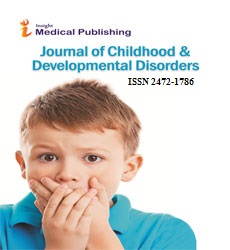Abstract
Emotion Recognition a Transdiagnostic Feature in Children and Adolescents with ASD and ADHD: The Humanitarian Perspective
Mental disorders contribute significantly to the overall disease morbidity in the young population on a global basis. This article primarily focuses on two of the most common neurodevelopmental disorders, ASD and ADHD, as several links have been made in literature with regards to the high comorbidity rates, the genetic overlap, and the shared etiological mechanisms. Impairments in facial affect recognition and theory of mind having been reported to be a transdiagnostic factor in both populations. We aim to tackle the question if on a global basis, emotion recognition interventions could be of benefit to children and adolescents with ASD and ADHD taking into account that universal gap in the mental health services for children and adolescents, particularly in countries with not so welldeveloped health care systems and infrastructures.
Author(s):
Aliki Economides*, Yiannis Laouris² and Anna Esposito¹
Abstract | Full-Text | PDF
Share this

Google scholar citation report
Citations : 504
Journal of Childhood & Developmental Disorders received 504 citations as per google scholar report
Abstracted/Indexed in
- Google Scholar
- China National Knowledge Infrastructure (CNKI)
- Directory of Research Journal Indexing (DRJI)
- WorldCat
- Publons
- Geneva Foundation for Medical Education and Research
- Secret Search Engine Labs
- Euro Pub
Open Access Journals
- Aquaculture & Veterinary Science
- Chemistry & Chemical Sciences
- Clinical Sciences
- Engineering
- General Science
- Genetics & Molecular Biology
- Health Care & Nursing
- Immunology & Microbiology
- Materials Science
- Mathematics & Physics
- Medical Sciences
- Neurology & Psychiatry
- Oncology & Cancer Science
- Pharmaceutical Sciences

